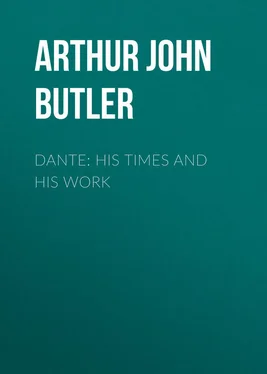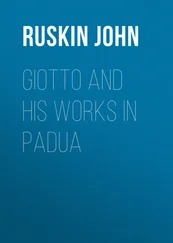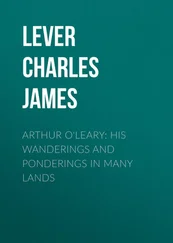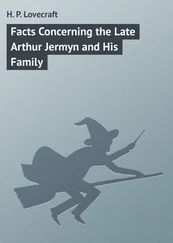Arthur Butler - Dante - His Times and His Work
Здесь есть возможность читать онлайн «Arthur Butler - Dante - His Times and His Work» — ознакомительный отрывок электронной книги совершенно бесплатно, а после прочтения отрывка купить полную версию. В некоторых случаях можно слушать аудио, скачать через торрент в формате fb2 и присутствует краткое содержание. Жанр: foreign_antique, foreign_prose, на английском языке. Описание произведения, (предисловие) а так же отзывы посетителей доступны на портале библиотеки ЛибКат.
- Название:Dante: His Times and His Work
- Автор:
- Жанр:
- Год:неизвестен
- ISBN:нет данных
- Рейтинг книги:3 / 5. Голосов: 1
-
Избранное:Добавить в избранное
- Отзывы:
-
Ваша оценка:
- 60
- 1
- 2
- 3
- 4
- 5
Dante: His Times and His Work: краткое содержание, описание и аннотация
Предлагаем к чтению аннотацию, описание, краткое содержание или предисловие (зависит от того, что написал сам автор книги «Dante: His Times and His Work»). Если вы не нашли необходимую информацию о книге — напишите в комментариях, мы постараемся отыскать её.
Dante: His Times and His Work — читать онлайн ознакомительный отрывок
Ниже представлен текст книги, разбитый по страницам. Система сохранения места последней прочитанной страницы, позволяет с удобством читать онлайн бесплатно книгу «Dante: His Times and His Work», без необходимости каждый раз заново искать на чём Вы остановились. Поставьте закладку, и сможете в любой момент перейти на страницу, на которой закончили чтение.
Интервал:
Закладка:
Конец ознакомительного фрагмента.
Текст предоставлен ООО «ЛитРес».
Прочитайте эту книгу целиком, купив полную легальную версию на ЛитРес.
Безопасно оплатить книгу можно банковской картой Visa, MasterCard, Maestro, со счета мобильного телефона, с платежного терминала, в салоне МТС или Связной, через PayPal, WebMoney, Яндекс.Деньги, QIWI Кошелек, бонусными картами или другим удобным Вам способом.
1
Otho Fris., Annales , v. 36.
2
A useful list, with some account of the authors cited by Dante, is given by Mr. J. S. Black, in a volume entitled Dante ; Illustrations and Notes , privately printed by Messrs. T. & A. Constable, at Edinburgh, 1890. He does not, however, include (save in one or two cases, and those rather doubtful) authors of whom Dante’s knowledge rests on inference only.
3
I do not forget Ulysses and Penelope, Hector and Andromache, or Ovid’s Heroïdes ; but the love of husband and wife is another matter altogether. The only instance in classical literature that I can recall of what may be termed the modern view of the subject is that of Hæmon and Antigone. See, on this subject, and in connection with these paragraphs generally, Symonds, Introduction to the Study of Dante , ch. viii.
4
This must be taken as referring only to European literature. Such a passage as Canticles ii. 10-14 shows that Oriental poets felt the sentiment from very early times. Is it possible that contact with the East evoked it in Europeans?
5
“When the summer was come, and the flowers sprang joyously up through the grass, right there the birds were singing; thither came I, on my way over a long meadow where a clear well gushed forth; its course was by the wood where the nightingale sang.”
6
“It was summer time, the month of May, when the days are warm, and long, and clear, and the nights still and serene. Nicolete lay one night on her bed, and saw the moon shine clear through a window, yea, and heard the nightingale sing in the garden, so she minded her of Aucassin, her lover, whom she loved so well” (Lang’s translation).
7
Lud = song; semlokest = seemliest; he = she; in hire baundoun = at her command.
8
It seems proper to say that this chapter was written, and at least some of it printed, before Mr. Oscar Browning’s interesting volume, Guelphs and Ghibellines (Methuen), appeared.
9
It may not be out of place here to correct the vulgar error that “Guelf” is in any sense the surname of our Royal family. The house of Brunswick is no doubt lineally descended from these Welfs of Bavaria; but it has been a reigning house since a period long antecedent to the existence (among Teutonic peoples) of family or surnames, and there is no reason for assigning to the Queen the Christian name of one of her ancestors more than another – “Guelf” more than “George.”
10
Hallam considers that hostility to the Empire was the motive principle of the Guelf party in Lombardy; attachment to the Church in Tuscany.
11
Observe that the Bondelmonti were comparatively newcomers. They had originally belonged to Valdigreve, and had only lived in Florence for some eighty years at the date of this event. Hence they were looked upon as upstarts, and not properly speaking, nobles at all. See Paradise , xvi. 133-147.
12
Hell , xxviii. 106.
13
Possibly “by the Uberti lot.”
14
Villani, Croniche , v. 37.
15
Purgatory , xvi. 115.
16
The name Podestà originally denoted the chief authority of a city or county, whether vested in one person or several. Frederick I. established Imperial officers under this title throughout Tuscany near the end of his reign, and for some time the Podestà was regarded as the Emperor’s delegate. Before the end of the century, however, they had become municipal officers, gradually displacing the former consuls from the chief position. About 1200 the custom of choosing them from the citizens of some other town than that in which they officiated, seems to have become established; the native consuls being their councillors.
17
Hell , x. 96.
18
Hell , xxxii. 81, 106.
19
Ibid. , x. 36.
20
Paradise , vi. 133.
21
They seem to have acted on the principle of filling their own pockets, rather than of maintaining order; and are placed by Dante among the hypocrites, in the sixth pit of Malebolge ( Hell , xxiii. 103). They belonged to the order of Knights of St. Mary, popularly called Jovial Friars.
22
It may be noted that the name is undoubtedly Teutonic. The suggested derivations from aliger , “the wing-bearer,” and the like, are purely fanciful. The first part of the word is doubtless alt , “old,” which we have in our own Aldhelm; the termination is the geirr , or gar , which occurs in all Teutonic languages, and means “spear.” Dante (= Durante) was a common Christian name.
23
Doubts have even been thrown on Dante’s friendship with this young King. To these we can only reply that, if it is not implied by Par. , viii. 55, it is impossible to draw any inference whatever as to Dante’s life from any line of the poem.
24
The conclusion of his account is picturesque enough to deserve reproduction. “The news of the said victory came to Florence the very day and hour when it took place; for the Lords Priors having after dinner gone to sleep and rest, by reason of the anxiety and watching of the past night, suddenly came a knock at the door of the chamber, with a cry, ‘Rise up, for the Aretines are discomfited;’ and when they were risen, and the door opened, they found no man, and their servants without had heard nothing. Whence it was held a great and notable marvel, seeing that before any person came from the host with the news, it was towards the hour of vespers.”
25
We find close resemblances between Dante and the founder of German mysticism. Not only in similes and illustrations, such as the tailor and his cloth, the needle and the loadstone, the flow of water to the sea, the gravitation of weights to the centre; or in such phrases as Eckhart’s “nature possesses nothing swifter than the heaven,” or his use of edilkeit “nobility,” in reference to freewill, la nobile virtù . These may have been, in some cases were, borrowed by both from a common source, though the fact of their so often borrowing the same things is suggestive. So, too, both Dante and Eckhart quote St. John i. 3, 4, with the punctuation adopted by Aquinas, quod factum est, in ipso vita erat – “what was made, in Him was life” – though the Vulgate and St. Augustine prefer the arrangement of the words familiar to us in our own version. But when we find such an unusual thought as that in Par. , viii. 103, 104, of the redeemed soul having no more need to repent of its sins, expressed in almost similar words by Eckhart, it is hardly possible to believe that it occurred to both independently. There are many other instances, but it would occupy too much space if I were to give them here.
Интервал:
Закладка:
Похожие книги на «Dante: His Times and His Work»
Представляем Вашему вниманию похожие книги на «Dante: His Times and His Work» списком для выбора. Мы отобрали схожую по названию и смыслу литературу в надежде предоставить читателям больше вариантов отыскать новые, интересные, ещё непрочитанные произведения.
Обсуждение, отзывы о книге «Dante: His Times and His Work» и просто собственные мнения читателей. Оставьте ваши комментарии, напишите, что Вы думаете о произведении, его смысле или главных героях. Укажите что конкретно понравилось, а что нет, и почему Вы так считаете.




![William Frith - John Leech, His Life and Work. Vol. 1 [of 2]](/books/747171/william-frith-john-leech-his-life-and-work-vol-thumb.webp)
![William Frith - John Leech, His Life and Work, Vol. 2 [of 2]](/books/748201/william-frith-john-leech-his-life-and-work-vol-thumb.webp)





